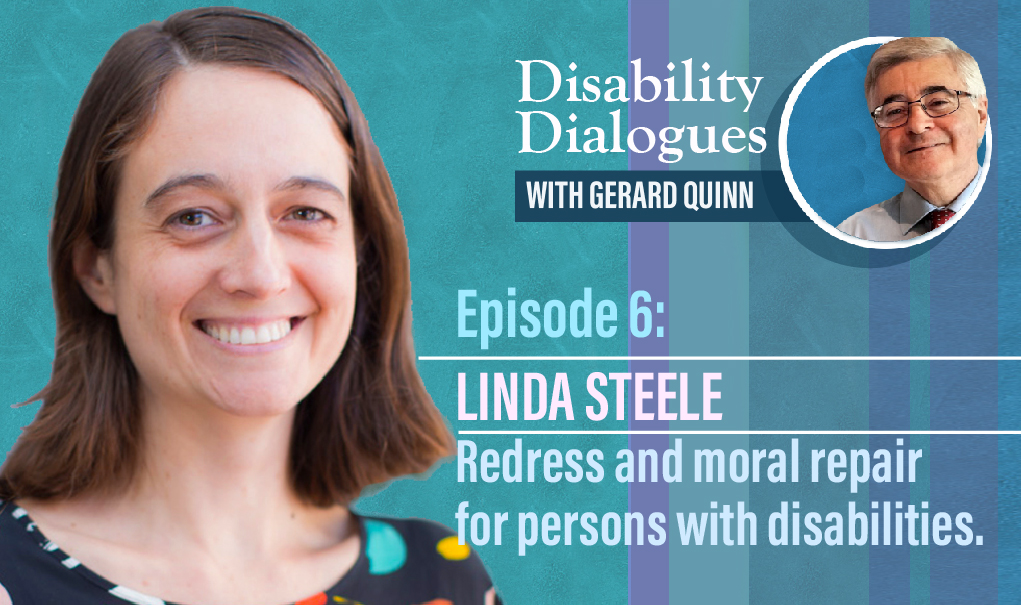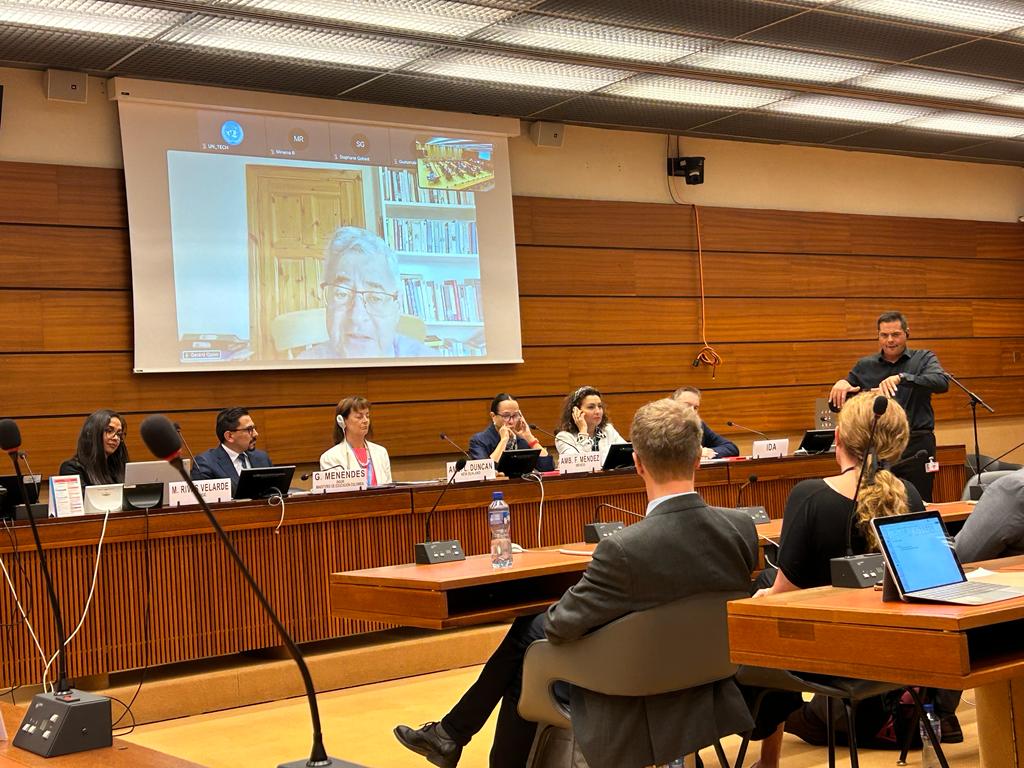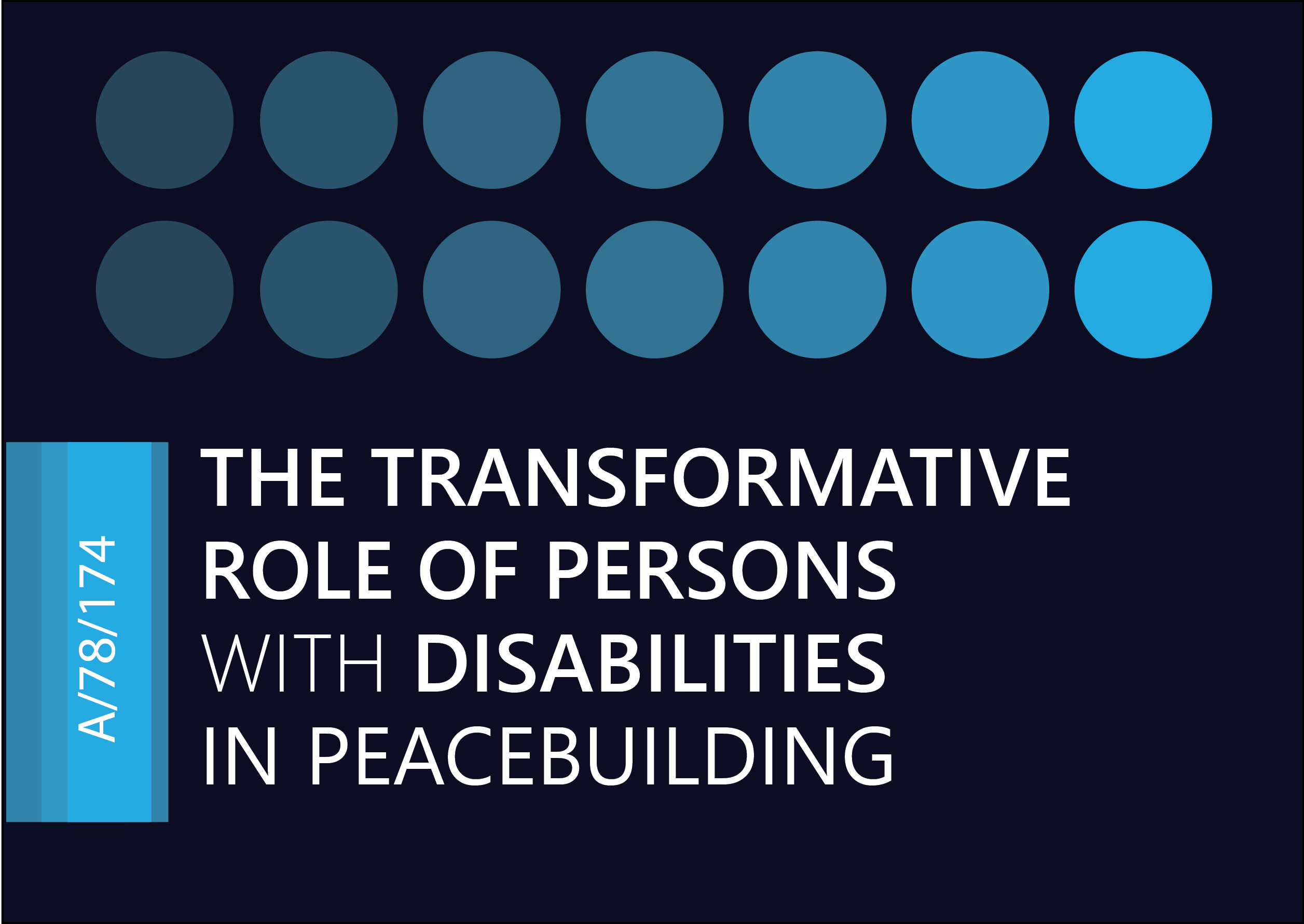Second of a series of 3 reports to the UN General Assembly, this report is dedicated to enhancing the inclusion and protection of persons with disabilities during the conduct of hostilities.
Concerns for the impact of conflict on persons with disability is not new. A consciousness of this is evidenced in the 1949 Geneva Conventions, their Additional Protocols, and in the specific obligation of protecting persons with disabilities during armed conflict, established by customary international humanitarian law (IHL).
However, this obligation is not reflected in the training and education of weapon-bearers, in military manuals or rules of engagement and standard operating procedures.
This report examines how core IHL obligations to protect civilians can be better aligned with the Convention on the Rights of Persons with Disabilities (CRPD) without creating new protections requirements, but instead ensuring that the existing obligations are being fully complied with.
The report also examines the implementation of the CRPD across UN structures, especially since the adoption of the UN Disability Inclusion Strategy (UNDIS), and explores whether IHL obligations towards persons with disabilities have been incorporated in the training of UN Peacekeeping Operations.
Voices from the ground
A key aspect of this report was to give voice to the lived experiences of persons with disabilities during armed conflicts. To this end, the Special Rapporteur partnered with the International Committee of the Red Cross (ICRC), the International Disability Alliance (IDA), and Diakonia International Humanitarian Law Centre to bring together organizations of persons with disabilities and State militaries from Central and South America, Africa and the Middle East/North Africa, in a first-of-its-kind series of consultations. Together, participants identified good practices and challenges, and discussed strategies to integrate the protection of persons with disabilities into military and peacekeeping operations.
During the consultations, failures in communication and exclusion during evacuations were highlighted as priority concerns, and stakeholders generally agreed on the need to ensure dialogue and participation as key mechanisms to address those concerns.
The way forward
Data collection and dialogue were identified as key requirements to remedy gaps between the acknowledgement of obligations towards persons with disabilities under IHL and their implementation. Platforms for State militaries and organizations of persons with disabilities to share experiences and insights are a key strategy to this end, especially for mapping civilian needs. Working together, they can start reverting the historic invisibility of persons with disabilities in armed conflict.
Based on the information collected during the consultations, the Special Rapporteur elaborated a series of concrete recommendations addressing the different stakeholders. These include:
States should engage organizations of persons with disabilities to develop military policy. They should align domestic legislation to IHL standards, ratifying relevant international treaties such as the CRPD and Geneva conventions, and collecting data disaggregated by disability, among others.
State militaries, regional security and defense organizations should integrate into their military doctrine, training, and operating procedures the obligation to protect persons with disabilities during armed conflict. They should maintain dialogue with organizations of persons with disabilities, and assume that persons with disabilities will comprise at least 15 per cent of any civilian population affected in military or peacekeeping operations.
The United Nations should continue its efforts to implement the Security Council resolution 2475. UN-mandated fact-finding bodies, including those from the Office of the UN High Commissioner for Human Rights, the Office for the coordination of Humanitarian Affairs among others, should collaborate with organizations of persons with disabilities in developing specific training modules on the risks and needs of persons with disabilities during military and peacekeeping operations.
The ICRC is encouraged to carry forward regional consultations among militaries, organizations of persons with disabilities and other stakeholders to raise the visibility of disability during armed conflict, and emphasize the protection of persons with disabilities.
Humanitarian organizations are encouraged to build their capacity on protection of the rights of persons with disabilities, primarily by engaging and collaborating with their representative organizations.
Civil society, including organizations of persons with disabilities should increase their capacity to interact with organizations working on the protection of civilians in armed conflict, and to produce quality research and recommendations to protect their rights in armed conflict and peace building.
The Special Rapporteur also dedicated a series of recommendations to universities, research bodies and funders, to expand knowledge and information related to the protection of the rights of persons with disabilities across the peace continuum, with an emphasis on the co-production of research and knowledge with civil society organizations, to include the experiences of persons with disabilities.





